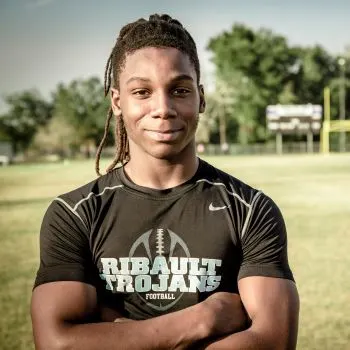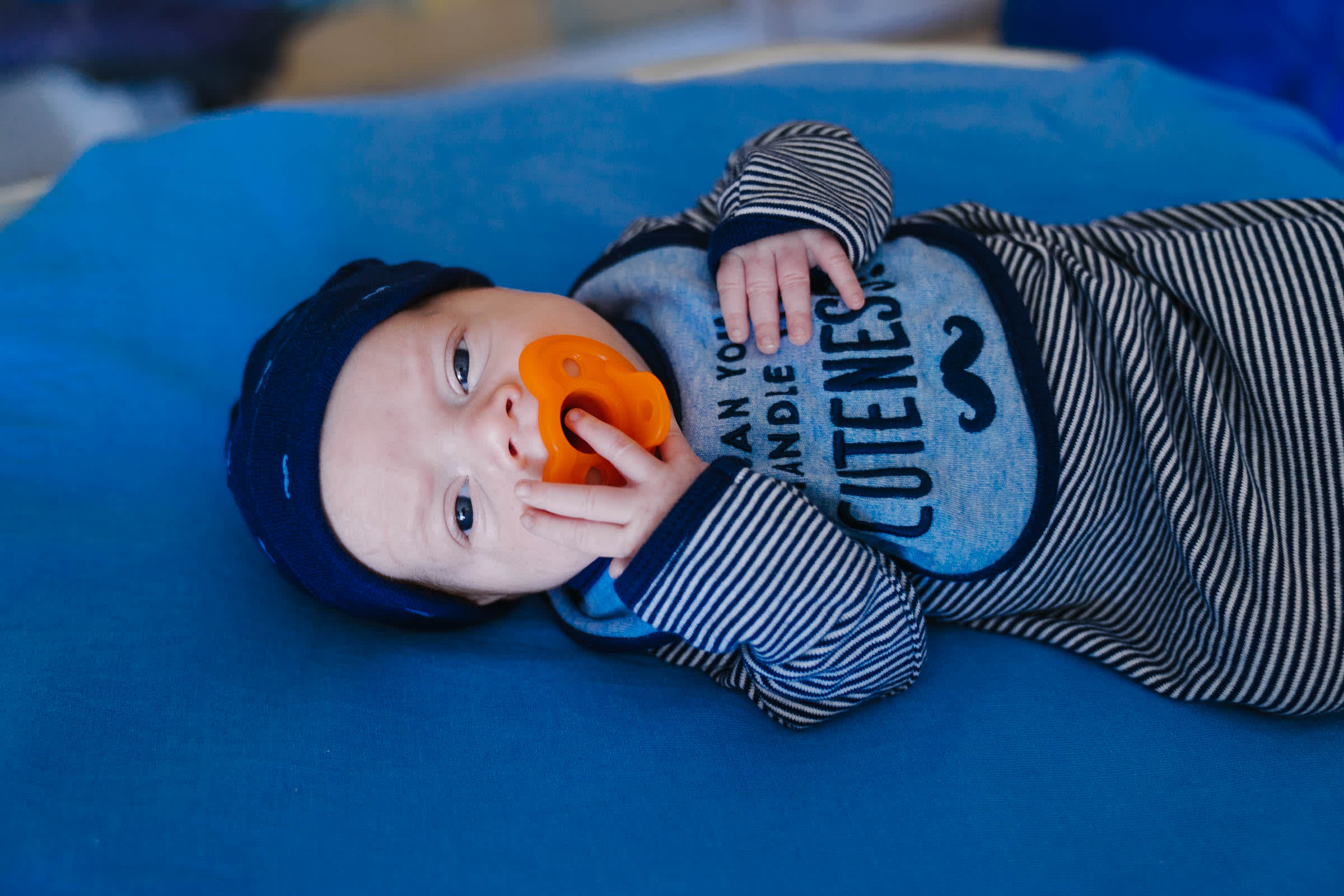
Teen’s Switch From Tuba to Football May Have Saved His Life
Jacksonville, Florida — Nov. 1, 2014
Ribault High School 10th-grader Nigeire Poyser has always loved sports, especially football. He played Pop Warner football since he was eight years old and always planned to join the Ribault High team. When he found out the school’s football team had been selected over the summer before his freshmen year, he joined Ribault’s band playing tuba and waited until he could try out for the football team the following summer.
Nigeire, now 16, was selected for the junior varsity football team at Ribault High School. At 5’9”, the muscular teenager was the perfect choice for the defensive linebacker position on the team. What no one knew but Nigeire was that his heart raced during football practice and that he knew something was wrong. But he didn’t want to sit on the bench, not being allowed to practice or play, so he didn’t tell anyone, not his even his mother Dasheika Williams, about his symptoms.
Fortunately, before the first game, Duval County Public Schools sent their boy and girl middle-school and high-school student-athletes to free health screenings, held each year by the Jacksonville Sports Medicine Program at two locations: Wolfson Children’s Hospital and Nemours Children’s Health, Jacksonville. The screenings, which have been offered for three decades by volunteer pediatric healthcare providers and support staff, include sports physicals and pediatric cardiology tests.
“My whole football team did our screening, but I was the only one who wasn’t cleared,” remembered Nigeire. He had been flagged to be examined by a pediatric cardiologist William Marvin, MD, at the screening because he reported his heart beating abnormally fast with exercise and that when he got hit during practice, his heart would race.
“I had an EKG and afterwards, Dr. Marvin sat me down and told me I had WPW (Wolff-Parkinson-White syndrome,” said Nigeire. “He told me I needed to be seen at the pediatric cardiology clinic.” When she heard the news, Dasheika was in shock, and maybe even denial. But she researched Nigeire’s condition and immediately called to make an appointment with Randall Bryant, MD, a pediatric electrophysiologist with the UF Health Pediatric Cardiovascular Center affiliated with Wolfson Children’s Hospital.
Dr. Bryant explained that Wolff-Parkinson-White syndrome is a heart condition in which there is an abnormal extra electrical pathway of the heart. In a normal heart, electrical signals travel through one bundle of nerves to help the heart beat regularly. The wiring of the heart prevents extra beats from occurring and keeps the next beat from happening too soon.
Nigeire was born with an extra bundle of nerves on his heart that sent an electrical signal down an extra pathway, causing a very rapid heart rate called supraventricular tachycardia. “It’s like a dog chasing its tail,” said Dr. Bryant. “And it has to be repaired because this condition puts the child at much higher risk for sudden cardiac arrest (SCA) during exertion. A direct hit to the chest could’ve triggered SCA in Nigeire.”
Dr. Bryant added, “I told him, ‘I know what’s wrong with you, I can take care of it and you can be back on the field in a few days,’ Nigeire jumped up and hugged him. He told me he was scared every time he played football and got hit all the time because of his position on the team. I think he was relieved that it could be fixed.”
Nigeire was scheduled for his procedure on July 17. Dr. Bryant threaded the catheter through his groin into the main artery of the heart, where he performed a catheter ablation. “Dr. Bryant told me he had the option of freezing or cauterizing the nerves, but he wanted to ‘burn’ because the nerves can awaken again after freezing,” said Dasheika.
Nigeire remembers waking up from conscious sedation with one thing on his mind and it wasn’t his heart or football. “I wanted something to eat,” he said. “They brought me crackers, a bowl of soup and jello, but I kept asking for more.” His mom knew that her son would be OK. Nigeire returned to practice and played his first game with the Ribault High School junior varsity team on Sept. 4. He had a checkup three months after surgery, where his EKG was completely normal. Nigeire will return to see Dr. Bryant at six months and 12 months post-operatively before he is considered “cured.”
Dr. Bryant joked, “I always provide my patients with a box of tissue when I am discharging them from my care.” He said he has participated in the Jacksonville Sports Medicine Program’s free student-athlete screenings every year since he arrived in Jacksonville in 1996. “These screenings save kids’ lives by identifying kids at the highest risk due to an undiagnosed heart condition,” said Dr. Bryant. “Our goal is not to restrict kids from playing sports, but to make sure they can play safely.”

Giving to Wolfson Children's
As the only not-for-profit children’s hospital in Northeast Florida, Wolfson Children’s Hospital relies on the generous support of moms and dads, grandmas and grandpas, and others who care deeply about the health and well-being of kids in our region. You can help by making a secure online gift or by calling 904.202.2919.
